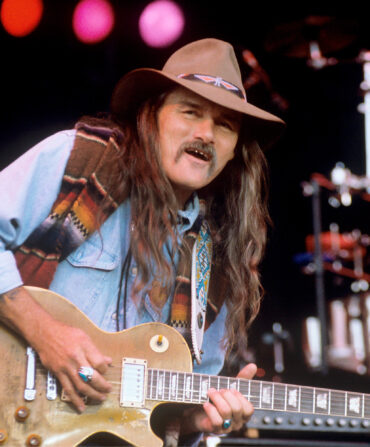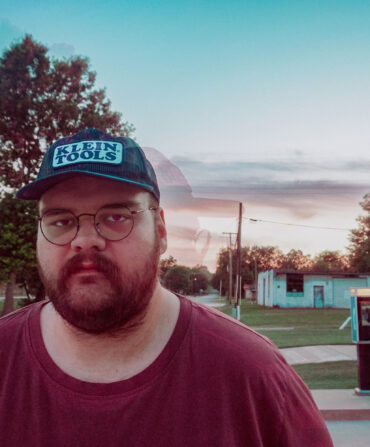It started with a tarp and a longtime friendship borne of music. After Hurricane Ida made landfall as a blustering Category 4 more than two weeks ago, the musician Louis Michot heard his friend the radio DJ A.J. “Boudin Man” Rodrigue needed help. “He just had surgery, and I was about to head to [the city of] Houma to bring him a tarp for his roof,” Michot says. “Then I talked to another friend in Golden Meadow who needed medicine. We started hearing reports from all over, and I realized there’s going to be a lot of people in need.”
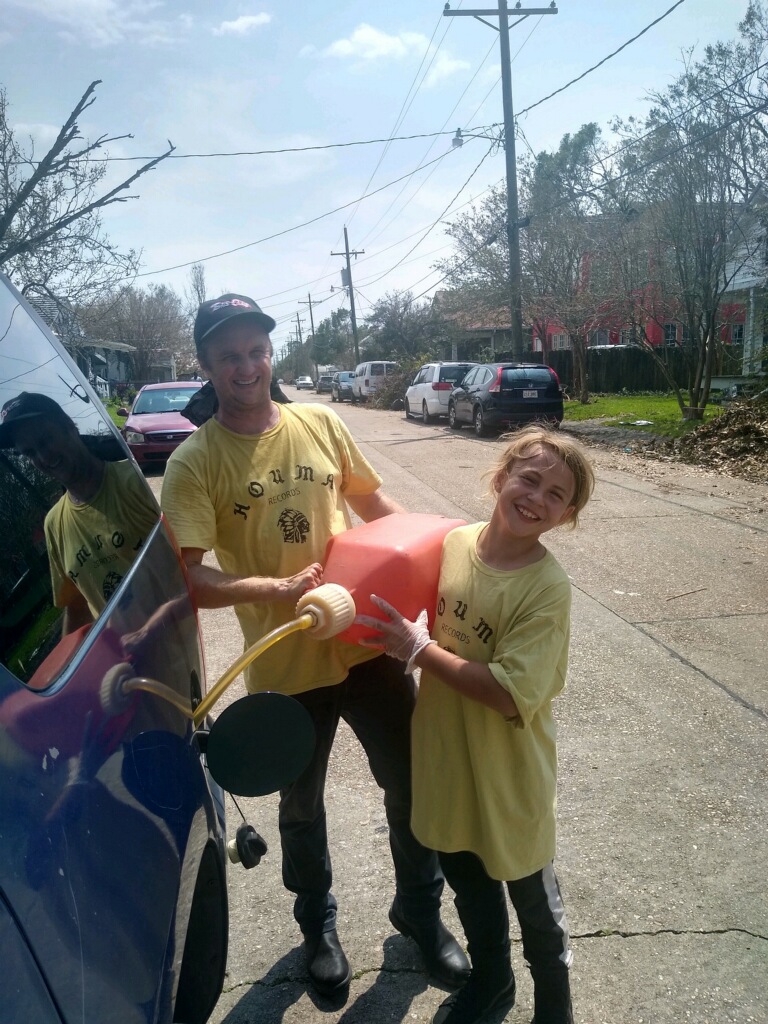
With a truck full of donated supplies, Michot drove from Lafayette to Houma and brought along his friend Brandon “B-Boy” Brown, who in turn brought his barbecue grill. “We set up on the street corner in Houma, and that was the most I’ve ever seen people I didn’t know cry in front of me, just for the simplest things like water, a twenty-dollar bill, or a plate of fresh hot barbecue and boudin.”
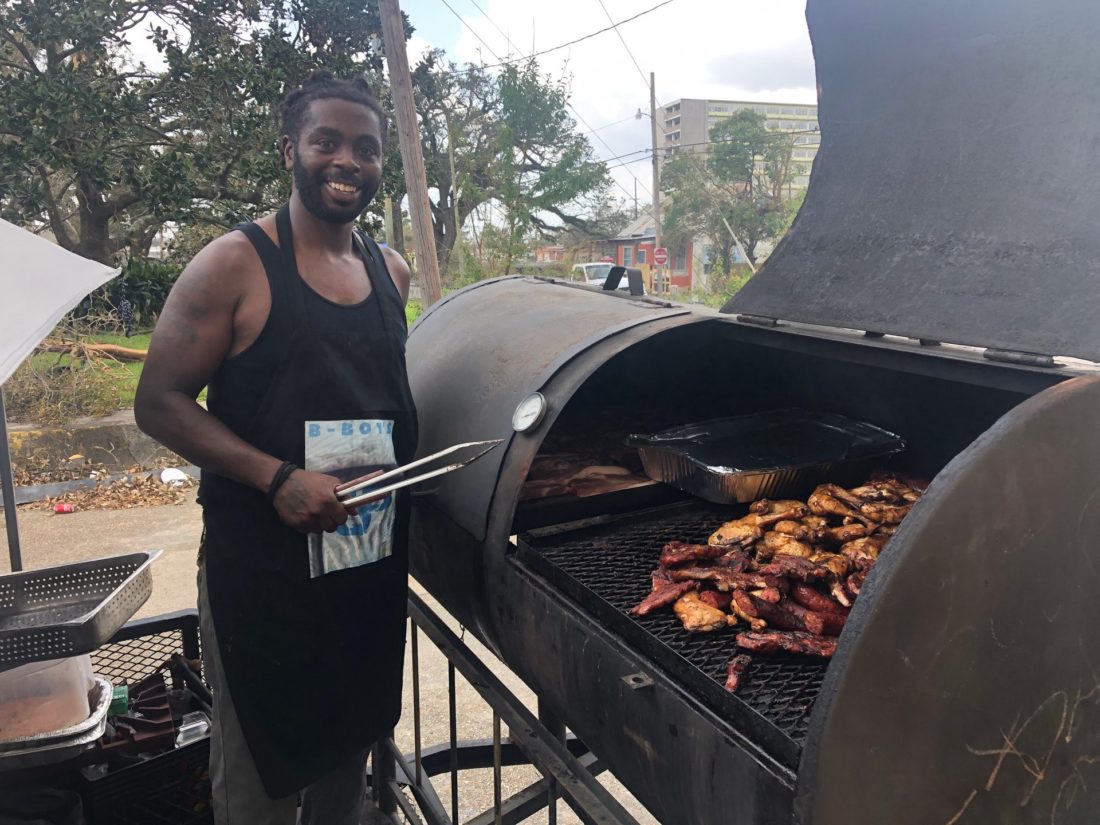
Michot has since continued to make trips to New Orleans and Lafayette to collect supplies and then head back into the hardest hit bayou communities, including Chauvin and Houma. Thousands of residents of southern Louisiana still do not have drinking water, electricity, or reliable phone service. “Whole communities are still just camping out in the Louisiana heat,” says Michot, who through his musical career with his bands—the Grammy-winning Lost Bayou Ramblers and Michot’s Melody Makers—has researched the music of rural Louisiana for years.
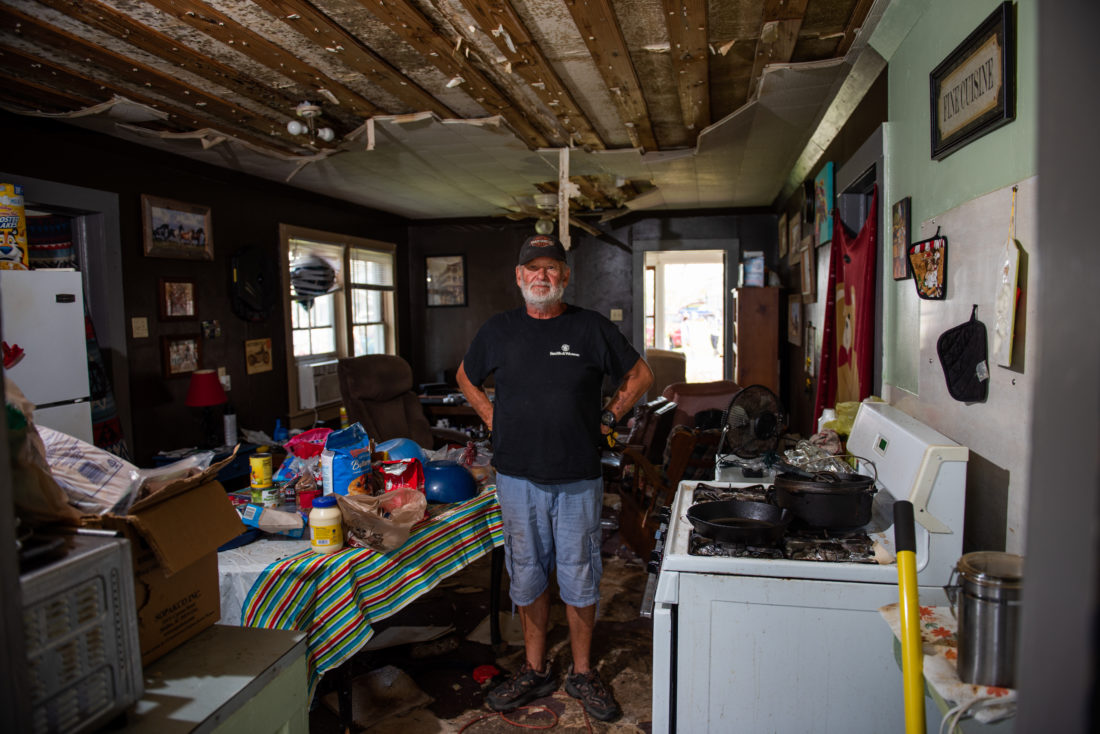
Coincidentally, he was working on a re-release of a collection from Houma Records, a 1960s label based in the area. “I had the hard drive of the remasters in my truck to bring to Houma, so we ended up with a speaker and a listening party of all this French rock and roll music as we were serving barbecue in the same town where the music was made.” The guy who originally ran that label? The Boudin Man’s own father. (Find more information on Michot’s record label here, and more information about the Bayou Fund, one of the places he’s been directing donations, here.)
More than even coincidence, personal connections and the power of music have been at the heart of much of the Ida response. The nonprofit Feed the Second Line came up with a creative way to distribute donated funds—they’re paying New Orleans musicians, already struggling from lost shows during the pandemic—gig rates to help bring supplies to hard-hit bayou communities. “We’re sending convoys of musicians down with gas, ice, batteries, roofing supplies, tarps, bug spray, and cleaning products, visiting the same people every other day so we can become super specific on people’s needs,” says Devin De Wulf, the organization’s founder. “These musicians by and large are survivors of Katrina, so they understand what it’s like—they’re not there to be disaster tourists, they’re there to be empathetic and pay it forward.”
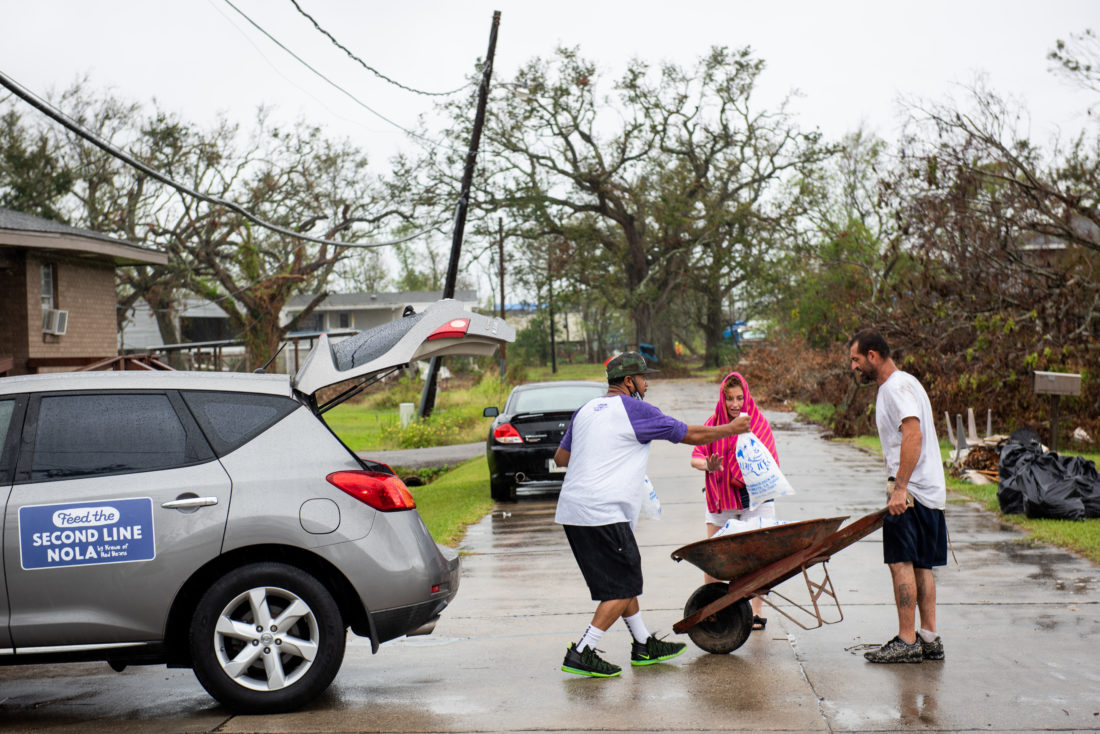
De Wulf says that the musicians, including the Treme-born brothers Corey and Renard Henry, are natural leaders in crisis. “Think about the skill set of a musician—they’re used to being on tour and managing logistics, they can get down in the community and communicate and relate, and they can meet people at their moment of need.”
So far, Feed the Second line has tarped and repaired 150 houses, purchased and distributed $15,000 of supplies, and paid $33,000 worth of labor to otherwise out-of-work musicians. “I think you’ll find in Louisiana that communities want to help one another and themselves more than they want outsiders doing the work,” De Wulf says. “We want to make the gumbo for our own people.”
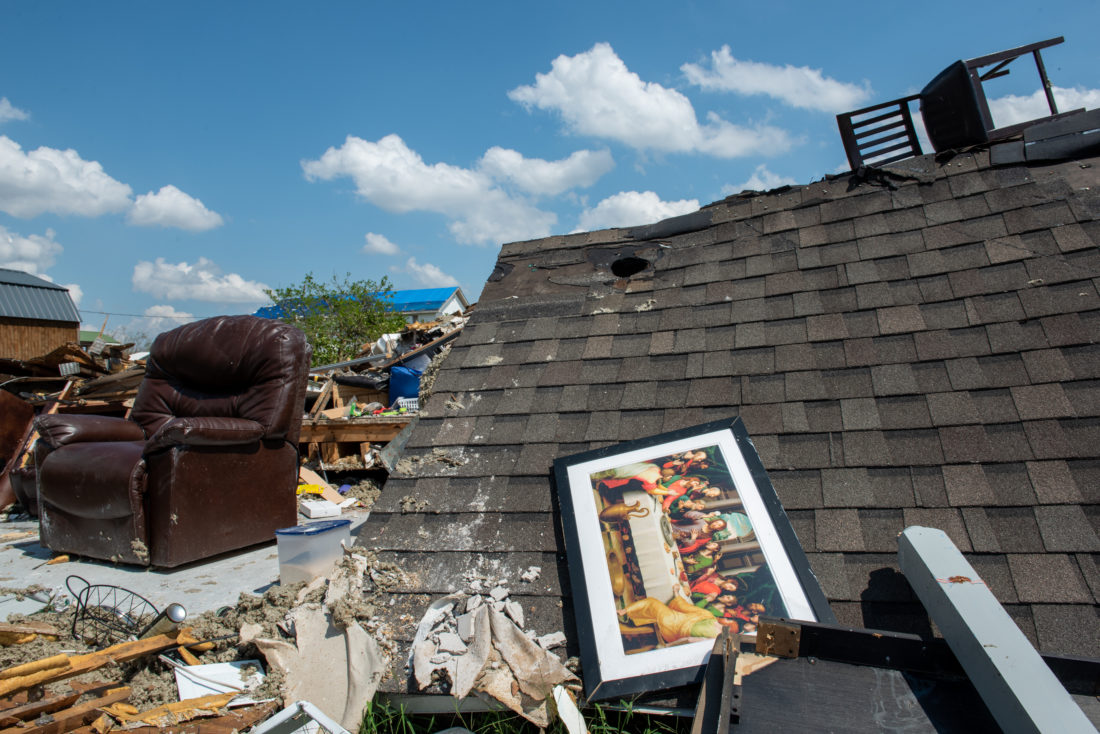
In New Orleans, hours after Ida hit, the Preservation Hall Foundation used an emergency relief fund to support musicians with immediate needs, including Louis Ford, a clarinet and saxophone player whose home in LaPlace was flooded with four feet of water. The Hall, says spokesperson Ryan Evans, will continue to support the nearly sixty Preservation Hall Musical Collective musicians, plus other local musicians and brass bands, with emergency grants until they can get back on their feet.
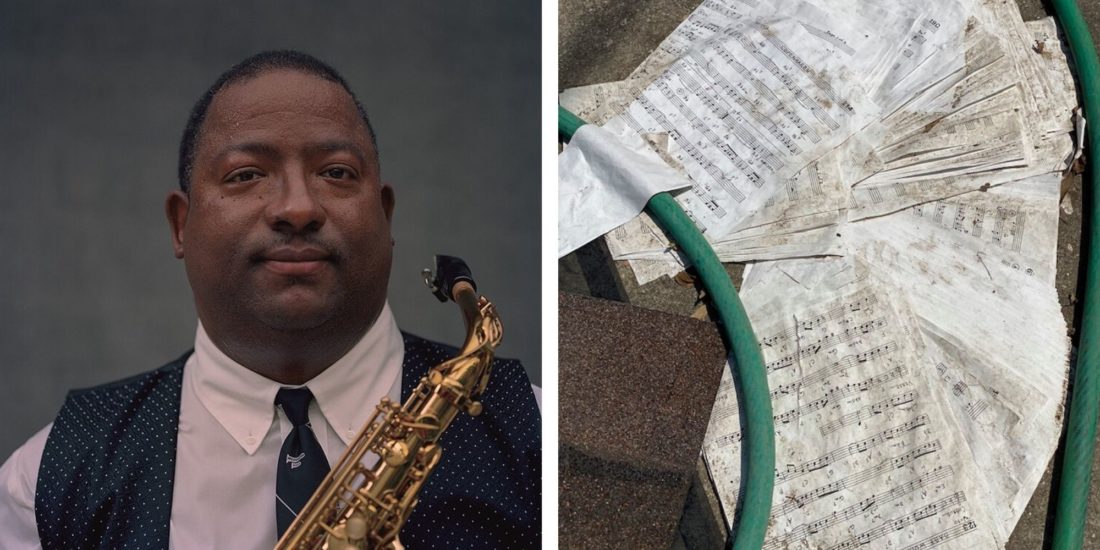
“The hardest thing about it all is so many people had so little before the hurricane,” Michot says, “and the hurricane took what little they had.” In the next few days, Feed the Second Line plans to hire Michot and his Michot Melody Makers to return to Terrebonne Parish to perform. “Last weekend, we brought an ice truck with 18,000 pounds of ice, but this weekend we’re planning to bring Louis,” De Wulf says. “He’s going to stop and perform in one neighborhood and then the next. We are going to be trudging through the long rebuilding process—it’s going to be months of this, but we can at least make people’s day a little better by bringing the healing power of music.”



